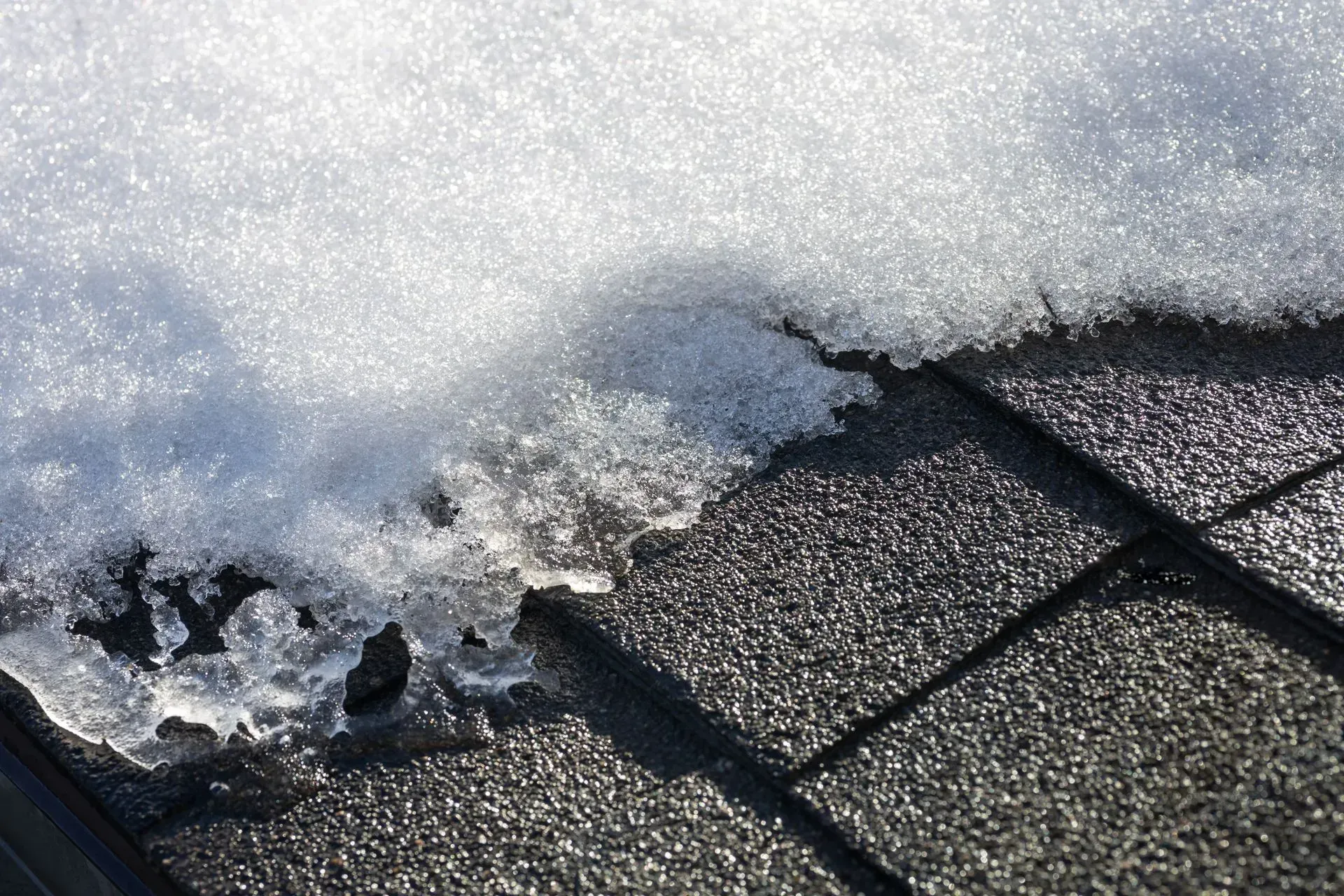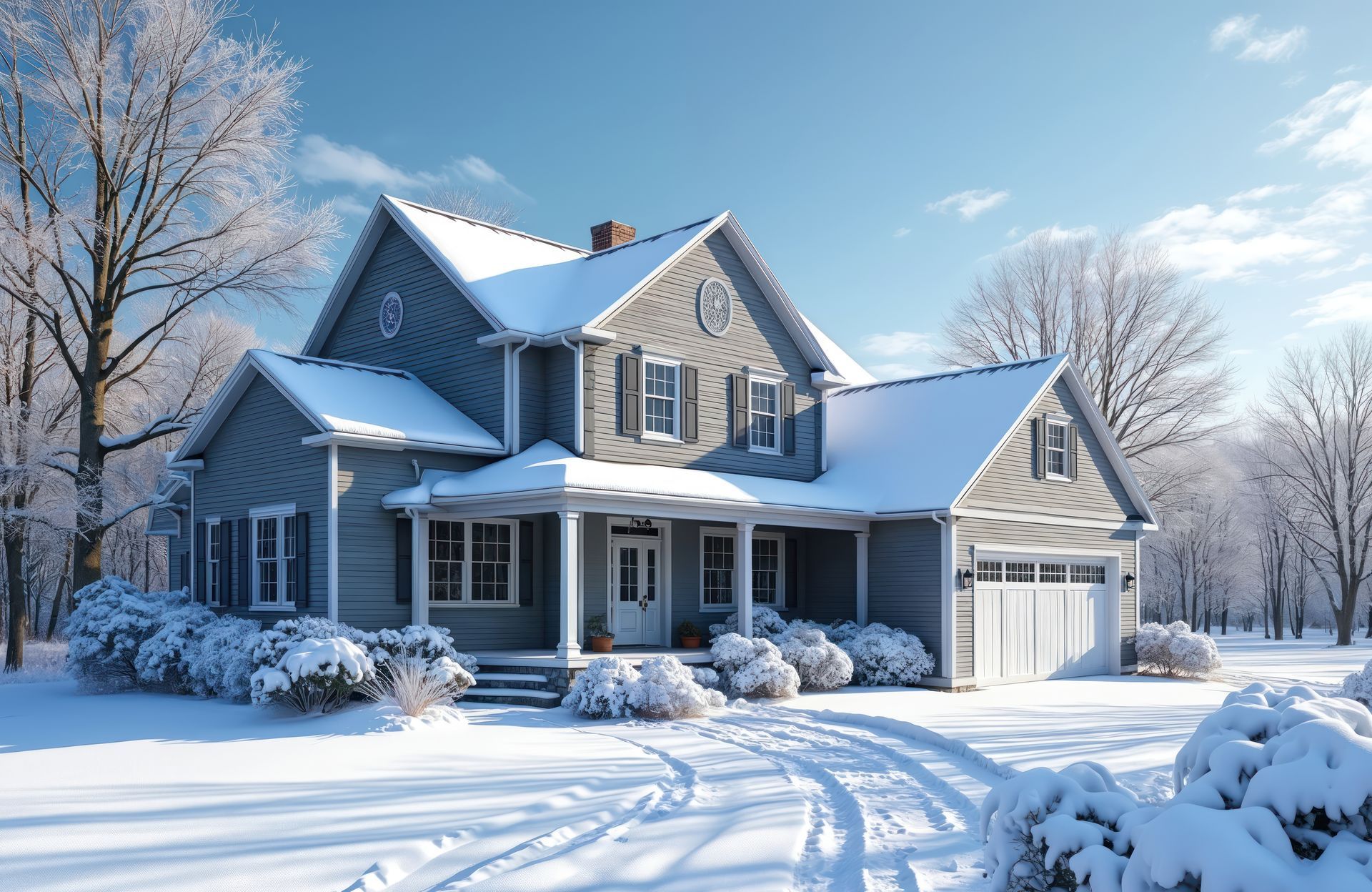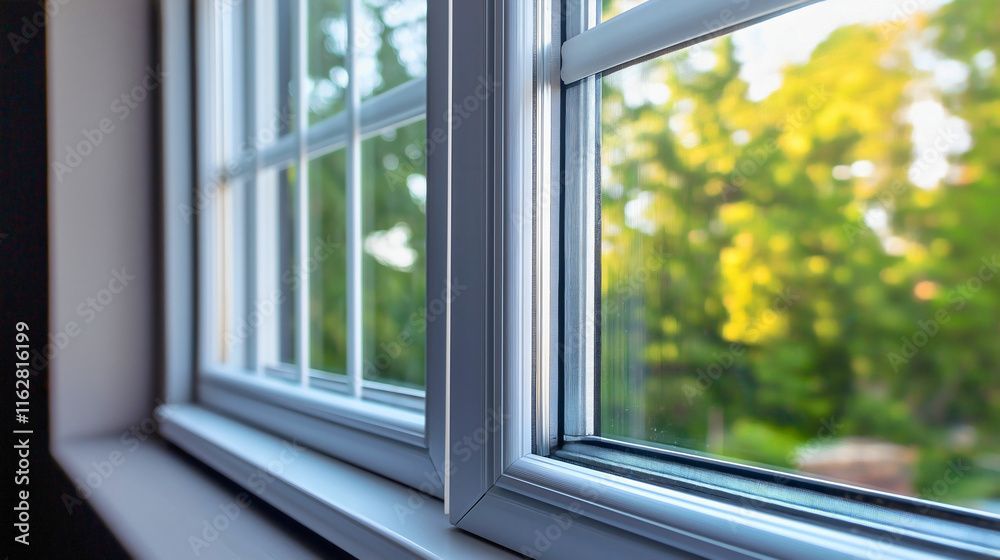
If you're a homeowner in Western Mass., you know how harsh our winters can be. As homeowners ourselves, we get it. From snowstorms to freezing temperatures, your roof takes a beating. But now that spring is around the corner, it's time to show your roof a little TLC. Properly maintaining your roof after winter can help prevent costly repairs and keep your home safe and cozy.
To help you, we put together a Spring Roof Maintenance Checklist to help you get started. Let's dive in!
1. Inspect for Winter Damage
First, you'll want to inspect your roof for any visible damage that might have occurred during the winter. Snow and ice can cause shingles to lift, crack, or even break off. Look for:
- Missing or damaged shingles: Ice dams, snow buildup, or high winds could have pulled shingles off or caused them to crack. If you notice any, they'll need to be replaced.
- Granule loss: Shingles can lose granules over time due to age or ice damage. Check for piles of granules in your gutters or around the base of your home.
- Cracked flashing: Flashing, the metal that seals areas where the roof meets walls, chimneys, or skylights, can crack or lift over the winter, leading to leaks later on.
If you spot any of these issues, contacting a professional roofer like Sexton Roofing and Siding is essential to get them fixed promptly.
2. Clean Your Gutters and Downspouts
Winter weather can leave your gutters clogged with debris, ice, and leaves. Clogged gutters can cause water to back up, leading to leaks and even water damage inside your home. To prevent this, clean your gutters and downspouts thoroughly. If you're uncomfortable doing this yourself, call us, and we'd be happy to help!
Water must flow freely from your roof and away from your home to avoid damaging your foundation and landscaping.
3. Check for Ice Dams
Ice dams are a common issue for homes in Western Massachusetts. When snow melts on your roof, the water can freeze at the edge, forming an ice dam. This dam can trap water and lead to leaks in your home. After the winter season, check the eaves and gutters for any signs of ice dams.
If you find any, taking care of them is essential. A professional roofer can help remove ice dams safely and offer advice on preventing them next winter.
4. Examine Attic Ventilation and Insulation
Proper attic ventilation is key to preventing ice dams and other roof issues. Poor ventilation can lead to heat buildup, which melts the snow on your roof, causing the dreaded ice dams. Also, check your attic insulation to make sure it's in good condition and properly installed.
If your attic insulation is inadequate, you could be wasting energy—and your home could be at risk for moisture buildup and mold.
5. Trim Overhanging Branches
Spring is the perfect time to trim any trees or branches that are hanging over your roof. Winter storms and high winds can bring down branches that can damage your shingles or gutter system. Trimming branches now can prevent future damage and keep your roof looking great.
6. Look for Signs of Leaks Inside
Sometimes, the damage on your roof isn't immediately visible from the outside. Check the ceilings and walls of your attic and upper floors for signs of water stains or discoloration, which could indicate a roof leak. Don't forget to check areas around chimneys, skylights, and vents, which are common spots for leaks to develop.
If you find water damage, it's time to call a professional roofer for a more thorough inspection.
7. Schedule a Professional Roof Inspection
While DIY inspections are a great start, having a professional roofer like Sexton Roofing and Siding take a closer look is always a good idea. A licensed roofer can spot potential issues that may not be immediately apparent and ensure your roof is in top condition for the upcoming seasons.
Getting a spring inspection is especially important if your roof is older or if you haven't had an inspection in a while. A professional can provide peace of mind and help catch problems early before they become expensive repairs.
8. Keep Your Roof Clean
Winter can leave your roof covered with debris, moss, and algae. Spring is the perfect time to clean your roof well (with help from a pro). Keeping your roof clean can help prevent long-term damage and keep it looking its best.
9. Consider Roof Upgrades
If your roof is nearing the end of its lifespan or if you've had ongoing issues, spring is a great time to consider upgrades. Whether you're considering new shingles, better insulation, or even solar panels, Sexton Roofing and Siding can help you explore your options. A new roof can boost your home's curb appeal and energy efficiency, both of which are worth considering.
10. Take Care of Your Siding and Exterior
While you're checking your roof, remember to check your siding, gutters, and downspouts. Winter can be tough on your home's exterior, and spring is the time to give everything a good check-up. Repairing or cleaning your siding and gutters can keep your home in great shape for the warmer months ahead.
Spring is a fresh start, and taking care of your roof is an important part of preparing your home for warmer weather. Regular maintenance and prompt repairs can extend the life of your roof and prevent costly problems in the future. Sexton Roofing and Siding is here to help with roof maintenance needs.
Don't hesitate to call us for a spring roof inspection or if you have any questions about roof maintenance. We're here to ensure your roof stays strong and reliable for many years to come.
Here's to a safe and sunny spring season ahead!
Sexton Roofing and Siding Proudly serves Western Massachusetts for all your roofing, siding, and home improvement needs.






